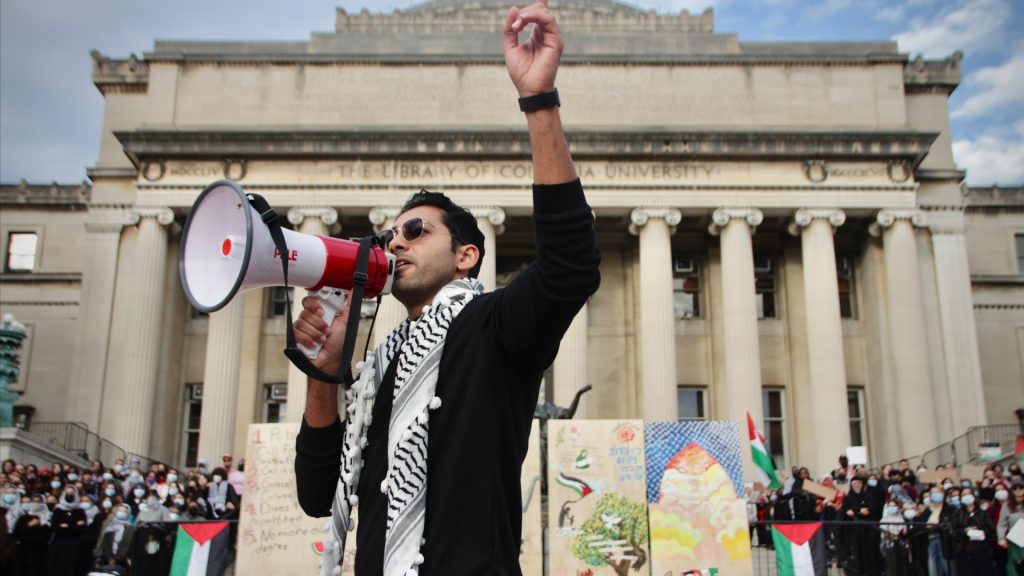Columbia University student activist detained by ICE freed by judge’s order

U.S. Immigration and Customs Enforcement detained Mohsen Mahdawi, a 34-year-old Palestinian-born student at Columbia University and U.S. permanent resident, on April 14, 2025. He had arrived at a Vermont immigration office for what was scheduled to be the final step in his naturalization process.
Instead, plainclothes federal agents arrested him without providing immediate information about where they were taking him. Mahdawi was later held at the Northwest State Correctional Facility in St. Albans, Vermont.
What reasons did the government give for detaining him?
The Trump administration accused Mahdawi of threatening U.S. foreign policy interests due to his involvement in pro-Palestinian campus activism. The Department of Homeland Security determined his presence in the U.S. as harmful to diplomatic objectives.
Unbiased. Straight Facts.TM
ICE agents arrested Mohsen Mahdawi at a Vermont immigration office on April 14, alleging his activism threatened U.S. diplomatic interests.
Federal filings also cited a 2015 police report from a Vermont gun shop owner who alleged that Mahdawi made violent, antisemitic remarks during a visit. Mahdawi denied ever making such statements, calling the account false and inconsistent with his personal beliefs.
What did the court decide about Mahdawi’s case?
On April 30, U.S. District Judge Geoffrey Crawford ordered Mahdawi’s release on bail, ruling that he did not pose a threat to public safety or a flight risk. The court allowed Mahdawi to resume his studies at Columbia while his case moves forward.
The judge denied a government request to delay the release and said Mahdawi had experienced “great harm” during his detention. Crawford also compared the government’s approach to targeting student protesters to McCarthy-era repression of academic speech.
What was Mahdawi’s response following his release?
Speaking outside the courthouse, Mahdawi said he was not afraid of the Trump administration and called attention to other detained student activists, including Mahmoud Khalil of Columbia and Rümeysa Öztürk of Tufts. Mahdawi emphasized that his freedom is tied to theirs, and called for an end to the Gaza war and U.S. aid to Israel. He led chants with supporters and warned that domestic actions on free speech and civil liberties would have global consequences.
What is the broader context of student deportations?
Mahdawi’s case is part of a broader federal effort to detain and deport international students connected to pro-Palestinian protests. Secretary of State Marco Rubio invoked a legal provision that allows for the removal of individuals deemed adverse to U.S. foreign policy.
Vermont’s congressional delegation publicly criticized Mahdawi’s arrest, calling it an abuse of power and a violation of due process. Advocacy organizations representing Mahdawi, including his legal team at Beldock Levine & Hoffman, said the government’s case lacked evidence and was retaliatory. They argued that Mahdawi’s activism should not disqualify him from naturalization or from being in lawful presence in the U.S.





